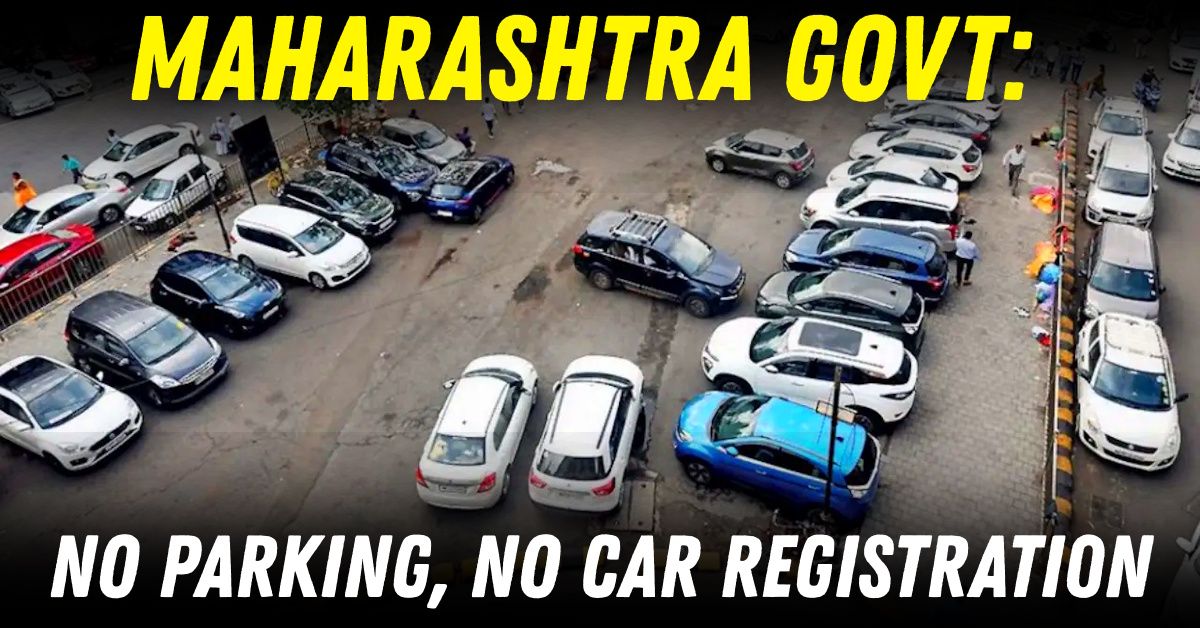No Parking Space, No Car: Maharashtra’s Bold Move to Curb Urban Congestion


Maharashtra is preparing to roll out a significant regulation that could change how people buy cars in its densely populated cities. In a bid to reduce traffic congestion and address parking woes, the state government has proposed a rule requiring proof of parking space before a car can be registered. The announcement, made by the state’s transport minister, signals a firm step towards urban decongestion, particularly in overburdened cities like Mumbai, Pune, Thane, and Nagpur.
This rule, once implemented, will make it mandatory for car buyers to furnish a valid certificate showing they have a designated parking spot before registering a new private vehicle. The objective is clear: discourage indiscriminate car ownership in areas already suffering from severe space constraints and rising vehicle density.
The pressure on infrastructure in Maharashtra’s major cities has been growing steadily. With over four crore registered vehicles in the state, the urban road network is increasingly choked by private vehicles. Mumbai alone adds close to 600 new vehicles every day, many of which end up being parked on narrow residential lanes or footpaths, further reducing road space and adding to traffic chaos.
This new rule aims to shift car ownership from being an impulse or aspirational purchase to a more considered decision that factors in a buyer’s responsibility towards public space usage. By introducing a barrier in the form of a parking certificate, the government hopes to filter out buyers who lack the means to house a vehicle without infringing on shared urban infrastructure.
The rule is expected to be enforced at the car registration stage. When a buyer applies for a vehicle registration number, they will need to submit a document proving that a parking space, either owned or rented, is available for the vehicle. This document will be verified by the Regional Transport Office (RTO) before the registration is approved.
While the precise format of the certificate and the verification process are still being finalised, officials have indicated that this will apply to new private vehicle registrations in urban areas only, at least in the initial phase. Commercial vehicles and rural registrations may be exempt, depending on further discussions.
For car buyers, this move introduces a new hurdle. Individuals living in older buildings without dedicated parking, tenants in high-density neighbourhoods, or those considering second or third cars may now have to rethink their plans. The new rule could also influence used car purchases if re-registration is involved.
Dealers and automakers might feel an initial impact as well, particularly for entry-level cars which are often bought by families upgrading from two-wheelers. Urban customers in this segment may delay purchases due to the added complexity of arranging parking. However, many in the industry acknowledge that such regulation was long overdue, given the unsustainable pressure on roads and public spaces.
Early reactions on online forums and owner communities are divided. Some buyers have welcomed the rule, saying it promotes responsible ownership and might even ease the daily parking scramble. Others argue that it adds bureaucracy and could hurt those in lower-income brackets or renters who struggle to find permanent parking spots.
There is also concern about how the rule will be enforced on the ground. Questions remain on how authorities will verify parking claims, especially when many parking spots are informal or unmarked. There is a risk that the process could become prone to misuse or favouritism unless there is a transparent, uniform framework.
Ultimately, the success of this regulation will depend on how it fits into broader urban planning efforts. Simply shifting the burden of parking onto car buyers may not be enough. The government will need to simultaneously invest in better public transport, create more structured parking facilities, and enforce stricter penalties for illegal parking.
For now, Maharashtra’s move has sparked a crucial conversation. It challenges the idea that car ownership is a right, independent of one’s ability to accommodate it responsibly. If implemented effectively, it could set a template for other congested cities looking to rein in traffic and reclaim public space.